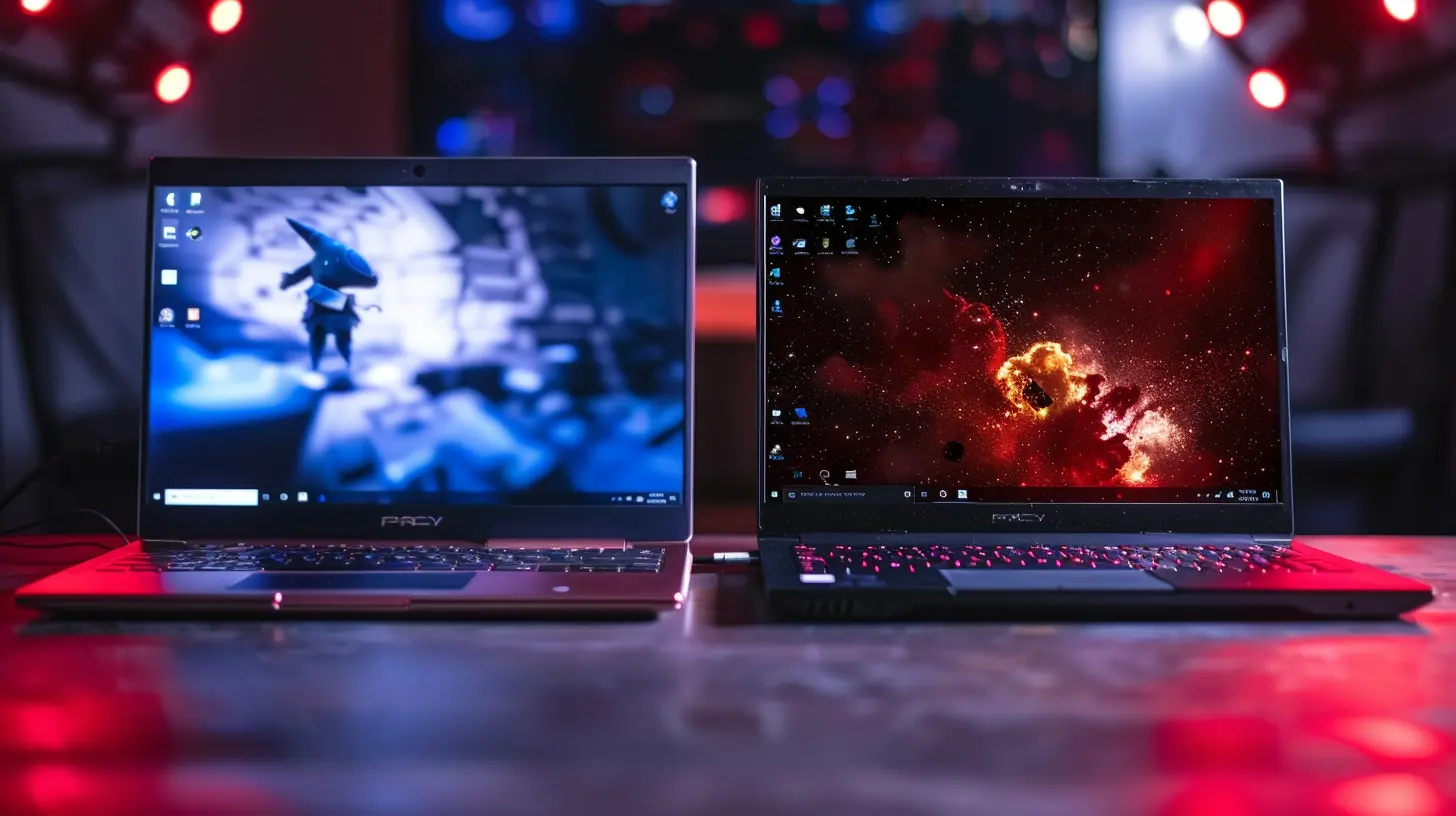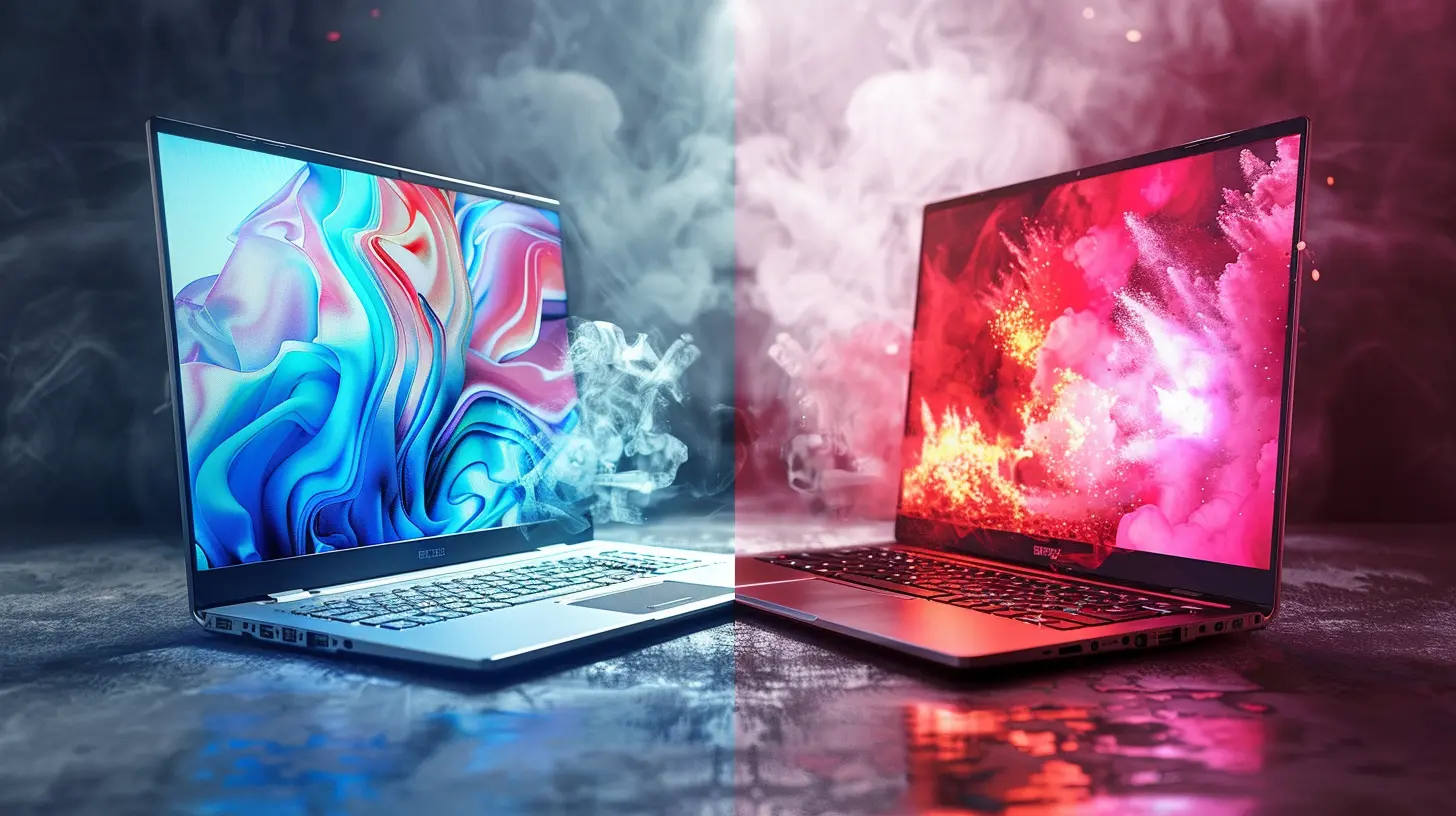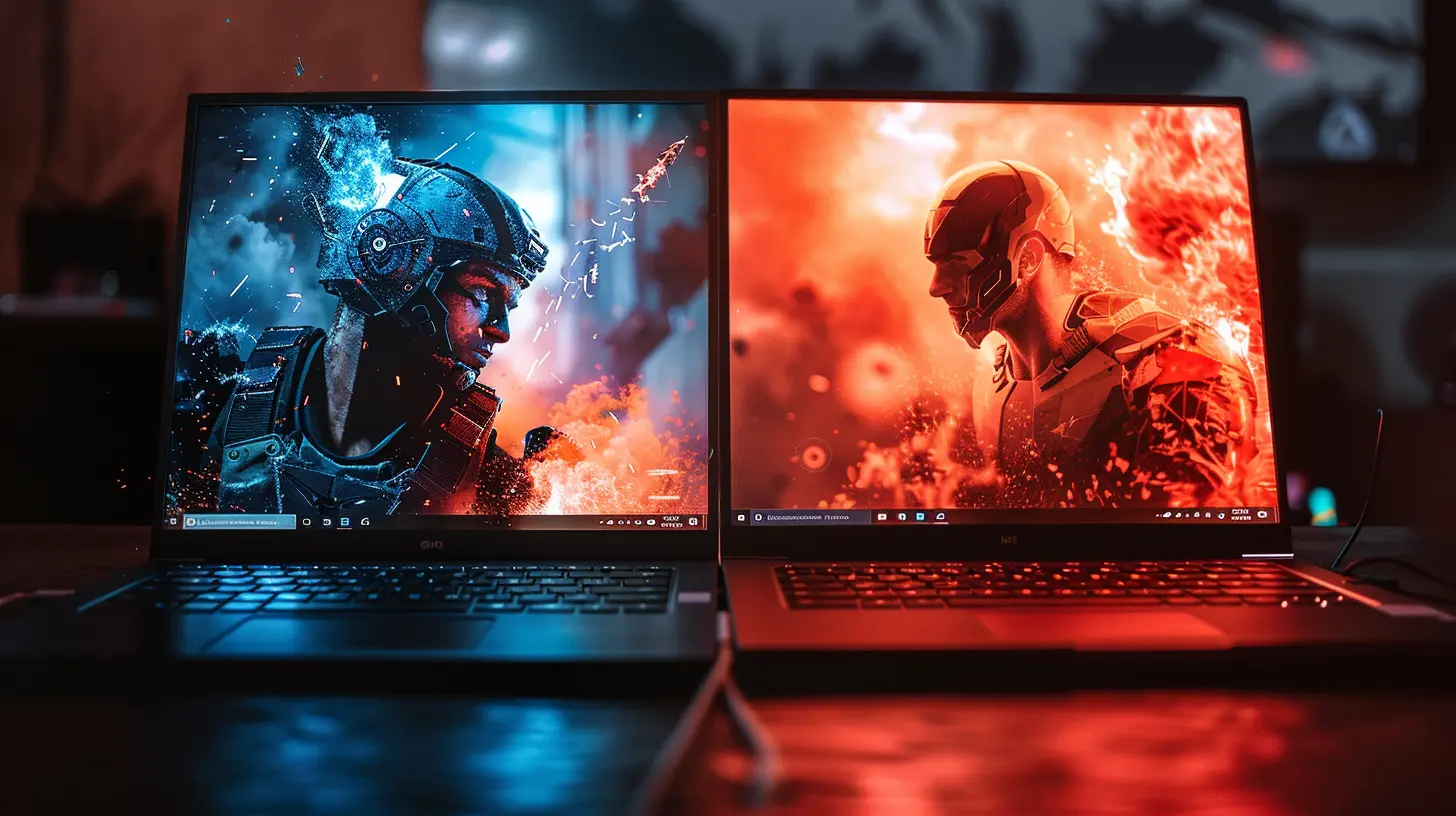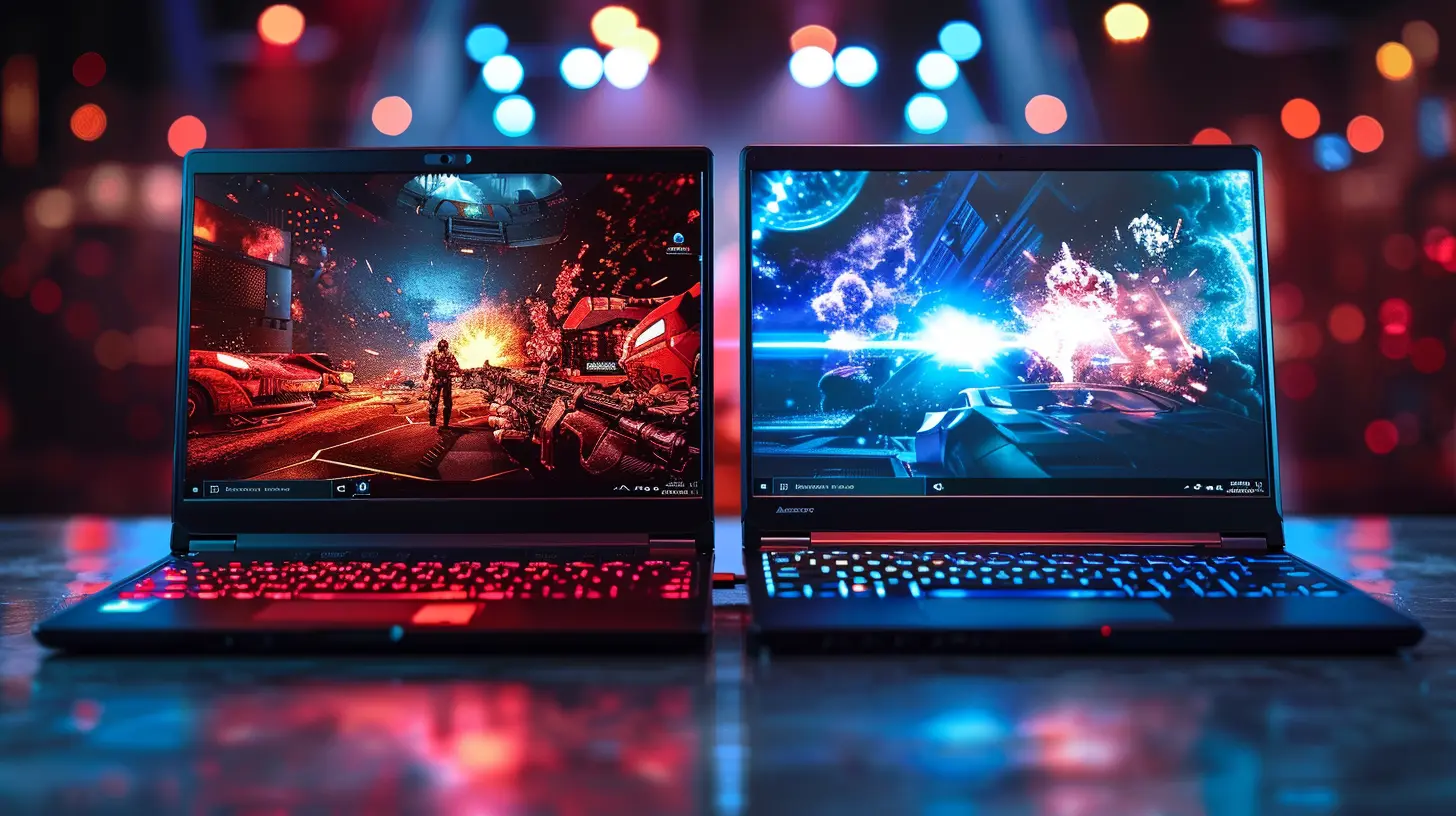Gaming Laptop vs. Desktop: Which is the Better Choice?
26 June 2025
So, you’ve finally decided to upgrade your gaming setup, but now you’re stuck with a big question: should you go for a gaming laptop or a gaming desktop? It’s like choosing between a sports car and a monster truck—both have their perks, but it really depends on what you need.
Both gaming laptops and desktops bring firepower, but they cater to different types of gamers. Some prioritize portability, while others crave raw performance and upgradability. In this article, we’ll break it all down—performance, price, portability, and everything in between—so you can make the best pick for your gaming lifestyle.
1. Performance: Raw Power vs. Compact Punch
When it comes to sheer performance, gaming desktops are the undisputed champions. They come with high-end GPUs, powerful CPUs, better cooling, and more room for upgrades.Gaming Desktops: The Powerhouses
- Higher-end GPUs & CPUs: Since desktops aren’t restricted by space or thermals like laptops, they can house the most powerful hardware.- Better cooling: Larger fans and even liquid cooling options help desktops run at peak performance without overheating.
- More RAM & Storage Options: You can easily install more RAM or add multiple SSDs and hard drives.
Gaming Laptops: Power on the Go
- Decent performance in a compact body: Laptops today pack some serious gaming hardware, but they often need to throttle performance to prevent overheating.- Thermal limitations: Due to confined space, cooling solutions aren't as efficient, leading to occasional thermal throttling.
- Slightly weaker GPUs: Even though laptops boast RTX and AMD GPUs, they are often trimmed-down versions of their desktop counterparts.
👉 Verdict: If raw performance is your top priority, desktops win hands down. But if you need decent power on the go, gaming laptops have come a long way.
2. Portability: Do You Game on the Move?
If you’re always on the move or love gaming at different locations (home, office, friend’s place), then a gaming laptop is a no-brainer.Why a Gaming Laptop Stands Out in Portability
- Compact & lightweight (relatively): While still bulky compared to ultrabooks, gaming laptops fit inside a backpack.- Built-in screen & keyboard: With a desktop, you need external peripherals, but a laptop is an all-in-one package.
- Gaming anywhere: Whether you're at a café or traveling, a gaming laptop ensures you don’t miss out on your favorite titles.
Why a Desktop Can Be Inconvenient
- Bulky & immobile: Even micro-ATX desktops need a monitor, keyboard, and mouse, making them impractical for travel.- Setup hassle: Want to move your desktop? Get ready to unplug everything and reassemble at the new place.
👉 Verdict: If portability is a must, gaming laptops are the clear winner. But if you rarely move your setup, a desktop is worth considering.
3. Upgradability: Future-Proofing Your Rig
Gamers love staying ahead with the latest tech, but not all devices offer the same level of upgradability.Desktops: The King of Upgrades
- Swappable GPUs, CPUs, and RAM: Unlike laptops, desktop parts are interchangeable, making future upgrades easy.- Multiple storage expansions: Install multiple SSDs or HDDs without breaking a sweat.
- Better cooling upgrades: Want a new liquid cooling system? No problem.
Laptops: Limited Upgrades
- Some RAM and storage upgrades possible: Many gaming laptops allow upgrading RAM and storage, but that’s about it.- Non-upgradable GPU & CPU: Most laptops have soldered CPUs and GPUs, meaning you're stuck with what you buy.
👉 Verdict: If future-proofing matters, desktops dominate. Laptops offer minor upgrades but can’t match desktop flexibility.
4. Price: Which One Gives More Bang for Your Buck?
When it comes to value for money, desktops often have the upper hand.Desktops: More Power for Less Money
- Cheaper for the same specs: A desktop with an RTX 4070 GPU will cost significantly less than a laptop with the same GPU.- Custom builds save more money: Building your own gaming rig allows you to pick the best parts within your budget.
- Longer lifespan: Since desktops are upgradable, they last longer before needing a complete replacement.
Laptops: Paying for Portability
- Higher price per performance: Due to compact engineering and battery tech, gaming laptops cost more for the same specs.- Limited lifespan: Since upgradability is restricted, gaming laptops may become outdated faster.
- Battery replacement costs: Over time, batteries wear out, adding an extra cost.
👉 Verdict: For cost-effectiveness, desktops win easily. If portability is a priority, though, expect to pay a premium for a gaming laptop.
5. Display & Peripherals: Built-In vs. Custom Setup
Your gaming experience isn’t just about hardware; your screen and peripherals matter, too.Gaming Desktops: Customization at Its Best
- Multiple monitor setups: Support for dual- or triple-monitor gaming.- Higher refresh rates, better panels: Choose from high-end OLED, 240Hz, or ultrawide screens.
- Custom keyboards & mice: Pick the best mechanical keyboard and high-DPI mouse for your playstyle.
Gaming Laptops: Built-in Convenience
- Integrated display: No need to buy an external monitor.- Portable keyboard & touchpad: While not as good as a mechanical keyboard and gaming mouse, they get the job done.
- Some models have high refresh rate screens: Some premium gaming laptops offer 144Hz or higher displays.
👉 Verdict: If you love customizing peripherals and using multiple monitors, a desktop is the way to go. But if you prefer an all-in-one solution, a laptop works well.
6. Power Consumption & Battery Life
Desktops are power-hungry beasts, while laptops aim for some level of efficiency.Desktops: More Power Draw
- Consumes more electricity: High-performance GPUs and CPUs crank up energy usage.- No battery backup: If the power goes out, your game crashes.
Laptops: Battery Backup (to some extent)
- Limited battery life: Most gaming laptops last 2-4 hours on battery, depending on usage.- Power-efficient modes: Some gaming laptops allow switching to integrated graphics for better battery life when not gaming.
👉 Verdict: Laptops win in power efficiency and have the advantage of battery backup. Desktops, however, consume more power but deliver raw performance.
7. Noise & Cooling: Keeping It Cool
Gaming rigs heat up fast, and how they manage heat affects both performance and longevity.Desktops: Superior Cooling & Quiet Operation
- Bigger, better cooling fans: Desktop cases allow for multiple cooling options, reducing overheating.- Less noise (generally): High-end gaming desktops tend to be quieter thanks to superior cooling solutions.
Laptops: Higher Temps, More Fan Noise
- Compact design = higher heat output: Limited space means more heat gets trapped.- Louder fans: Many gaming laptops get noisy under load as fans spin at max speed.
👉 Verdict: Desktops are easier to cool and generally quieter. Gaming laptops struggle with heat in compact spaces.
Final Verdict: Which One Should You Choose?
| Feature | Gaming Laptop | Gaming Desktop ||-----------------|--------------|---------------|
| Performance | ⭐⭐⭐⭐ | ⭐⭐⭐⭐⭐ |
| Portability | ⭐⭐⭐⭐⭐ | ⭐ |
| Upgradability | ⭐⭐ | ⭐⭐⭐⭐⭐ |
| Price-Performance Ratio | ⭐⭐ | ⭐⭐⭐⭐⭐ |
| Customization | ⭐⭐⭐ | ⭐⭐⭐⭐⭐ |
| Cooling & Noise | ⭐⭐⭐ | ⭐⭐⭐⭐⭐ |
| Battery Backup | ⭐⭐⭐⭐ | ⭐ |
Choose a Gaming Laptop If:
✅ You need a portable gaming setup.✅ You don’t plan on upgrading your hardware frequently.
✅ You’re okay with paying a premium for convenience.
Choose a Gaming Desktop If:
✅ You want the best possible performance for your money.✅ You love upgrading and customizing your setup.
✅ You don’t need to game on the go.
At the end of the day, it’s all about what fits your gaming style. If you game in one place and want the best performance, a desktop is the way to go. But if you love gaming wherever you please, a gaming laptop is your best bet.
all images in this post were generated using AI tools
Category:
Gaming LaptopsAuthor:

Adeline Taylor
Discussion
rate this article
2 comments
Maisie McDougal
Great article! Both gaming laptops and desktops have their perks, but choosing the right one truly depends on your gaming style. Exciting times ahead for gamers! 🎮✨
November 14, 2025 at 1:47 PM

Adeline Taylor
Thank you! You're absolutely right—each has its advantages, and finding the best fit for your gaming style is key. Exciting times indeed! 🎮✨
Jocelyn Fields
Choosing between a gaming laptop and desktop ultimately depends on your lifestyle and gaming habits. Laptops offer portability, while desktops provide superior performance and upgradeability. Consider your priorities before deciding.
July 1, 2025 at 4:04 AM

Adeline Taylor
You're absolutely right! It all comes down to personal priorities—portability versus performance. Prioritize what matters most to you for the best choice!


